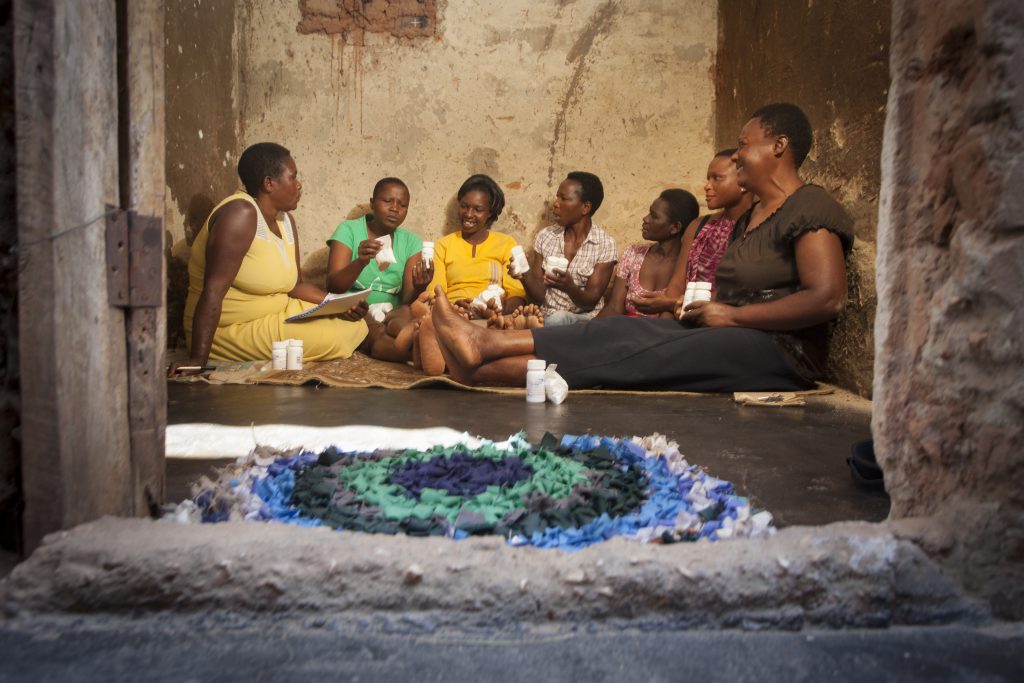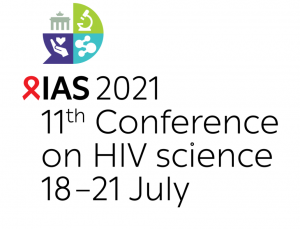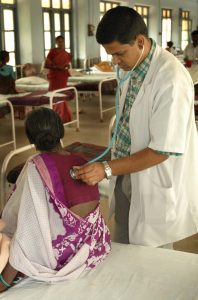
By Chelsea Elkins
For the past 10 months, Kayla Cody-Lushozi has served as the inaugural Global Health Program Officer for I-TECH’S Global Health Leadership Development Program. The aim of this program is to support the development of skills in global health program implementation, management, and leadership for recent master’s degree graduates with diverse backgrounds who are transitioning into the public health field.
This program is structured to directly support the programmatic needs of multiple I-TECH projects while providing the Program Officer with mentorship across the I-TECH network and supporting the transition into a non-temporary global health position. In 2019, Cody-Lushozi received her Master’s in Social Work (MSW) from the University of Washington (UW) and has used this background, along with her unique experiences and expertise, to inform her work at I-TECH.
During her time as a Program Officer, Cody-Lushozi has worked with three teams across the I-TECH network, plunging into a few of the many areas of work I-TECH implements and supports. In collaboration with partners from FHI 360 and leaders from the Cambodian Ministry of Health, Cody-Lushozi supported a health informatics program, working to streamline databases and strengthen health systems in Cambodia. Additionally, she explored how to revive Community Advisory Boards for people living with HIV (PLHIV) in Jamaica in a sustainable and community-centered way with I-TECH network partner the Caribbean Training and Education Center for Health (C-TECH). She worked with community partners in Zimbabwe, as well, exploring the support systems in place for case managers supporting young PLHIV. This work was done with I-TECH partner the Zimbabwe Technical Assistance, Training and Education Center for Health (Zim-TTECH).
September marks the end of Cody-Lushozi’s time with I-TECH. Below, she shares some reflections on her time in the Leadership Development Program, as well as what might come next.
What has the experience of being a Program Officer at I-TECH meant to you?
This has been an incredible experience, and it came at a perfect time. Right before I-TECH, I was working at the Washington State Department of Social and Health Services doing direct service social work with economically marginalized clients with mental and physical health needs. While I enjoyed this role and understood its importance, this was not the type of social work practice that I wanted to pursue in the long run.
My passion and interests lie in research, especially community-centered research that allows me to work directly with Black communities in improving access to health justice. I-TECH came along at the right time and allowed me to dive deeper into the world of global health implementation.
The projects I’ve done at I-TECH have been really varied, and I’ve gotten an inside look and experience across different areas. I am constantly learning at I-TECH. I-TECH does a million things, which might have been overwhelming to a new person entering the organization, but I always felt very supported by my teams. They made it clear that I didn’t need to have all the answers.
I also appreciate that this program aims to attract a diversity of experience, background, and perspective. It encourages more than just a singular lens. I’ve been able to share my unique background and experiences as a Black woman social worker in global health. I’m excited to see where this program goes and how it continues to support I-TECH’s evolution.
This has been a beautiful experience for me. Working at I-TECH served as a great affirmation that this is the area of work that I want to continue to grow in.
How has your background in social work shaped how you’ve entered the global health field?
Before getting my MSW I already had an interest in public health, even before I was calling what I was doing public health. I wanted to use the framework and the lens that social work provides within a public health setting. I always gravitate toward work that is community-centered and centers the voices and expertise of those in the margins. These are some of the values that I bring with me into the global health space and that I hold very close to my professional and personal practice.
These values have helped me in this field because public and global health work is not always operating from the pillars of anti-oppressive practice. There’s so much historical and contemporary discourse that needs to be addressed and often isn’t in this field. You can’t be ahistorical if you’re truly trying to get to the root causes of global health inequity and injustice. Many of the issues that we see in global health are connected to issues of global white supremacy, imperialism, and resource extraction. It’s a tension that I hold in this field but something I try to do my part to shed light on.
You have done a lot of meaningful work during your time with I-TECH. What does your life look like when you’re not working?
I’ve gone through a lot of life changes these past 10 months. I’m a newlywed; I got married in June to my now husband Mawande. Being a new wife is really exciting.
A big chunk of my husband’s and my time outside of work is dedicated to our small homemade skincare business, K+M Homemade Skincare, that we officially launched during COVID. We do a lot of farmer’s markets and pop-ups on the weekends. Ask anyone and they can tell you that we love making and talking about our skincare.
In what direction do you see yourself moving after I-TECH?
After I-TECH, I see myself continuing to engage in global and public health spaces that are truly committed to community work and radical racial and social justice transformation. I am not comfortable doing this work in the absence of working directly with community members and local stakeholders. Top-down approaches have colonial and imperialist roots. I believe in doing “with” and not doing “to” and actively partnering with communities for long-term sustainability and quality health care reform.
I will be packing up and moving to South Africa in 2022 and am currently open to a position that will allow me to continue to practice in this exciting field. My interests lie in research, project management, and implementation work related to HIV care and treatment, maternal and child health, and mental health. I am also contemplating pursuing an MPH or a PhD in global health and implementation science sometime in the future. It’s been an incredible past 10 months with I-TECH and I am excited to stay in contact with this global network. I thank everyone who has been part of this journey with me!
The I-TECH network thanks Kayla Cody-Lushozi for her work and wishes her well as she continues to forge her path in global health!
If you are interested in participating in the Global Health Leadership Development Program, more information is available here.






